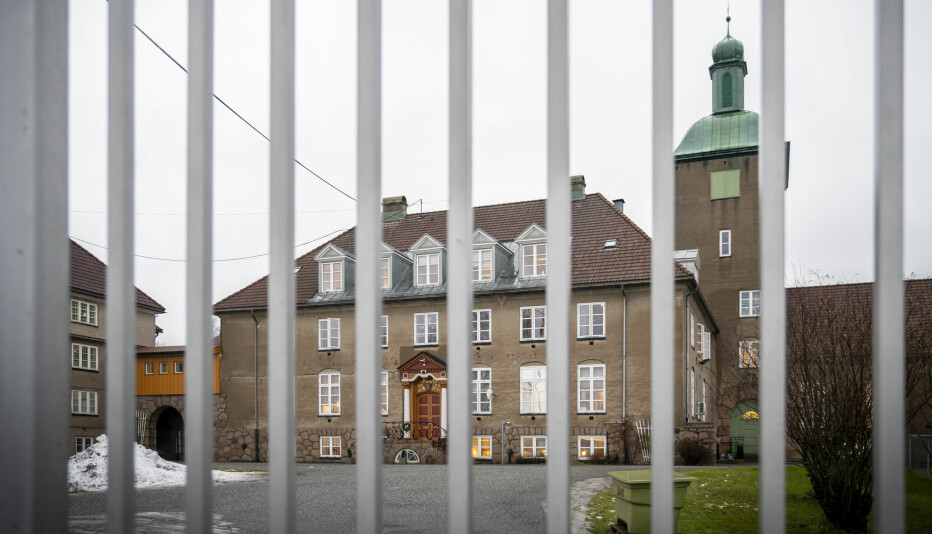
With kids in the house, mothers are less satisfied
A mother’s life satisfaction and relationship satisfaction goes downhill in the first years following pregnancy and birth, according to a new study of more than 67,000 women.
Denne artikkelen er over ti år gammel og kan inneholde utdatert informasjon.
The popular notion is that a newborn baby brings couples closer to each other. This sounds like an appealing bite of common sense, but the idea has nonetheless been challenged over and over again by an increasingly convincing body of research.
The somewhat uncomfortable results from several of these studies show that mothers’ satisfaction with their relationships and life in general starts to sour as baby screams become a part of their daily lives.
One such study, conducted by researchers at University of Nebraska College of Nursing in the United States, found that marital happiness scores were, compared to childless couples, lower in subjects who were pregnant, had 5-month-old or 24-month old children.
Supported by fresh research
The US researchers used a sample of 185 subjects. A new study by Gunvor Marie Dyrdal and colleagues at the University of Oslo looked at the same topic and surveyed more than 67,000 Norwegian mothers over a three-year period. The respondents were asked how satisfied they were with life in general and how satisfied they were with their relationship. They were asked during early pregnancy, late pregnancy, and six and 36 months after birth. The results are clear:

“Having kids has a negative long-term effect on life satisfaction and relationship satisfaction,” says Dyrdal.
The study shows that women’s relationship satisfaction has a positive surge from early to late pregnancy, but that it has plummeted six months after birth. The nose-dive continues until the low point is reached three years after birth. Relationship satisfaction is at this point much lower than it was in the early days of pregnancy.
The women’s life satisfaction appears to be more resistant to the initial post-birth gloom, but three years after the navel cord is cut these scores are also way down.
Relationship satisfaction affects life satisfaction
“This means that dissatisfaction with one’s relationship affects life satisfaction over time, dragging the general life satisfaction down with it,” says Dyrdal. She explains that women who are satisfied with their relationship during pregnancy are more likely to be satisfied with life in general three years after birth, whereas the opposite does not appear to be the case.
Having kids has a negative long-term effect on life satisfaction and relationship satisfaction.
This implies that relationship satisfaction affects life satisfaction more than a general life satisfaction affects how happy one is with a relationship, especially during the transitional phase of pregnancy and birth.
Norway and the US – contrasts for new mothers
For new parents in the United States and Norway, one of the notable contrasts between their situations is the paternity and maternity leave schemes on offer. Norwegian parents can cash out as much as 46 weeks of leave with full pay, whereas the US is one of very few industrialised countries which don’t provide any paid leave for new mothers or fathers – nationally (there are exceptions in some states). Free health care is another plus for Norwegian women.
“An interesting speculation resulting from these findings can be whether Norway’s social policies and benefits make it less stressful for women to have children,” says Dyrdal. “Even though that was not the focus in this study, Scandinavian countries are generally known for being good places to live, and you’d think our social benefits would affect life satisfaction.”
And it appears that they do: although Norwegian women are significantly less satisfied three years after giving birth, they are still remarkably happy.
“It’s not as if they’re devastated,” she says. “They are actually significantly happier than other samples.” These samples include Australian, Spanish and Japanese women.
But the negative effect a child brings into their lives is still undesirable. Dyrdal says the satisfaction slump could be related to a pregnant mother’s high expectations of the time to come.
“If one is a bit more realistic and realise that having a baby isn’t only fantastic, but that it also includes late nights, diapers, less spare time and all these other things, one can be better prepared.”
The negative effect persists
Whether life satisfaction and relationship satisfaction continues to fall as the child grows older is beyond the scope of this study. But Dyrdal says other studies suggest that life satisfaction is generally marred until the kids move out.
Is the moral of the study, then, that having kids is a bad idea? Or perhaps the cost-benefit analysis of having kids isn’t as clear-cut. Dyrdal says it’s challenging to measure how meaningful adults find their parental time.
“We haven't yet measured how meaningful parents find certain ‘golden moments’ to be, such as when your kid says something to you, or looks at you and smiles,” she says. “Such happy moments can be quite intense, and we need to include them in future studies to get a clearer picture of how children affect parents' satisfaction with life.”


































